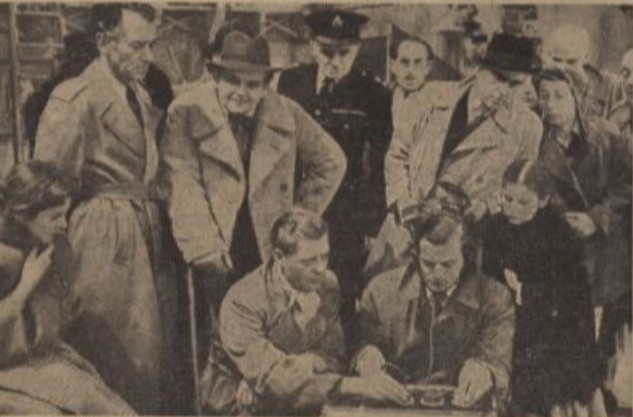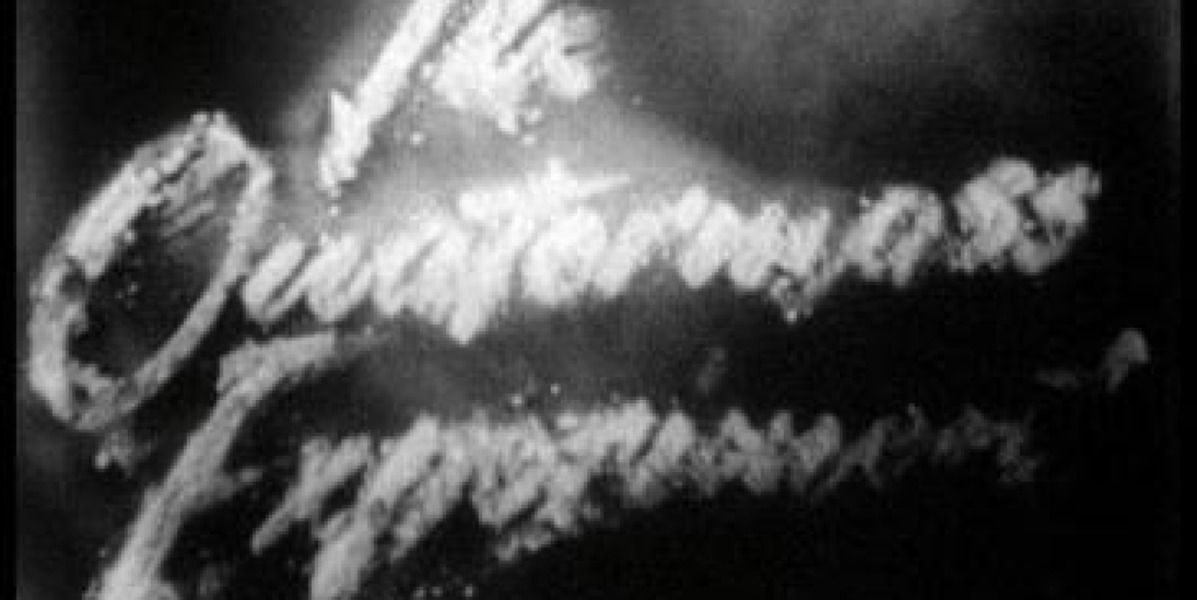A state of emergency is declared and the army is brought in. Quatermass plays the creature the rocket tapes and appeals to the last vestiges of humanity left in Carroon to fight what he has become. The creature finally dies, just before it is due to spore.
|  |
Viewers will remember this scene at the beginning of Nigel Kneale's serial that ends tonight with 'State of Emergency'
|
| Production company/ies | Broadcast station(s) | Broadcast date(s) |
|---|
| BBC | BBC Television Service | August 22, 1953 |
Production credits
| Producer(s) | Director(s) | Writer(s) | Other notable credits |
|---|
| Rudolph Cartier | Rudolph Cartier | Nigel Kneale | Settings: Stewart Marshall |
Acting credits
- Professor Bernard Quatermass, head of the British Experimental Rocket Group: Reginald Tate
- Judith Carroon, chief assistant to Quatermass: Isabel Dean
- John Paterson, Senior Engineer: Hugh Kelly
- James Fullalove, chief columnist of 'Daily Gazette': Paul Whitsun-Jones
- Victor Carroon: Duncan Lamont
| - Dr Gordon Briscoe: John Glen
- Chief Inspector Lomax: Ian Colin
- Detective-Sergeant Best: Frank Hawkins
- Of a Television Outside Broadcast Unit
- Producer: Tony van Bridge
- Commentator: Neal Arden
- Secretary: Josephine Crombie
- Sir Vernon Dodds: John Kidd
- Cabinet Minister: Keith Pyott
|
Notes
The Quatermass Experiment is a landmark British science fiction serial created by Nigel Kneale. It was the first sci-fi series written specifically for an adult audience in the UK. The story revolves around Professor Bernard Quatermass, who oversees the first crewed spaceflight by the British Experimental Rocket Group. When the spaceship returns to Earth, only one of the three astronauts, Victor Carroon, is found on board, and he is behaving strangely. It soon becomes clear that an alien presence has entered the rocket, and Quatermass must prevent it from threatening humanity.
The series was broadcast live - with a few pre-filmed 35mm film inserts shot before and during the rehearsal period - from Alexandra Palace and consisted of six half-hour episodes, though only two episodes have survived. The BBC intended that each episode be telerecorded onto 35mm film, a relatively new process that allowed for the preservation of live television broadcasts. Only poor-quality copies of the first two episodes were recorded before the idea was abandoned. It is very unlikely that material from the third to sixth episodes of the serial will ever be recovered to the BBC's archives.
The popularity of The Quatermass Experiment gained the attention of the film industry, and Hammer Film Productions quickly purchased the rights to make an adaptation, which was released in 1955, as The Quatermass Xperiment. The BBC was also pleased with its success and a sequel, Quatermass II, was broadcast in 1955.


